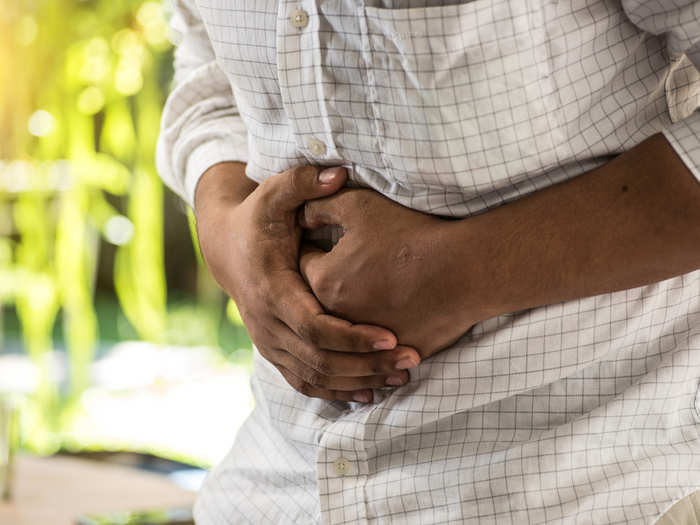- Home
- slideshows
- miscellaneous
- I used to eat dairy at almost every meal - here's what happened when I gave it up for 6 weeks
I used to eat dairy at almost every meal - here's what happened when I gave it up for 6 weeks
My complexion improved

I ate healthier meals and tried new foods.

Only when I stopped eating dairy did I realize how much of it I'd been consuming. Without dairy in my diet, I started to buy foods that I'd been avoiding because they required a bit more work to prepare, such as sweet potatoes.
Not only are sweet potatoes rich in antioxidants, but they also contain a lot of fiber. Plus, the sweetness showed me that healthy foods can be tasty, too.
I started to go to vegan restaurants as well, which my carnivore self had previously shunned. It turns out that beetroot spring rolls filled with carrots and dipped in agave peanut butter sauce are delicious.
As for my glass of milk before bed, I tried many dairy-free substitutes: almond, soy, oat, coconut, and coconut chocolate. Coconut chocolate was my favorite, though the more sweet vegetables and fruits I consumed, the less I wanted the drink at all. My nightly "milk" tasted too sweet, so I stopped drinking it altogether.
I felt less bloated.

In giving up dairy, I felt less bloated almost immediately and had fewer stomach aches, which may be a sign that I'm actually lactose intolerant.
"Some people are lactose intolerant, which means they can't digest foods with lactose, the sugar found in milk and other dairy products," Jennifer Caudle, a family physician and associate professor at Rowan University School of Osteopathic Medicine, told me. "Symptoms of lactose intolerance can include bloating, gas, stomach cramps, and diarrhea."
Caudle said that some of her patients have reported feeling less bloated when they stop eating dairy. "However, it is something that should be evaluated on a case-by-case basis," she said.
I had fewer migraines.

I used to get migraines frequently. When a friend told me that cutting out dairy, especially certain types of cheeses, helped her migraines go away, I thought it sounded ridiculous. But it worked for me, too.
According to the National Headache Foundation, some cheeses — such as aged ones — can be headache or migraine triggers.
I had more energy.

I attributed my newfound energy to a more diversified diet. As long as I remembered to get my fill of calcium and nutrients, I no longer felt lethargic like I did before the experiment.
However, there may have been other factors beyond the change in my dairy intake. Prior to this experiment, my diet had also been high in carbs and sugary foods. Sweets and refined carbohydrates like white pastas and breads fall high on the Glycemic Index (GI) scale, meaning that they significantly raise the amount of glucose in your blood after you eat them. High-GI foods can lead your energy levels to spike and then crash.
When I gave up dairy, the effort led me to eat a more diversified diet, which included more low-GI foods. Such foods don't cause the same spikes in blood sugar, so result in more sustained energy levels.
In the days since my six weeks of going dairy-free, I've continued trying to limit my dairy consumption as much as possible.

But I no longer eliminate 100% of dairy products.
Caudle said it's most important to eat a healthy and well-balanced diet to get enough nutrients.
"Dairy contains lots of calcium, protein, and vitamin D, among other nutrients," she said. "If dairy is eliminated from the diet, it is important for these nutrients to be obtained through other sources. Calcium and vitamin D are important for the health of bones and teeth, and protein is an important building block in the body."
She suggested eating foods such as cereals fortified with calcium, kale and other dark leafy greens like bok choy or collard greens, sardines, fatty fish like salmon, legumes, whole grains, soy products, and nuts, which are all good sources of calcium and vitamin D.
Of course, if you're curious about embarking on a non-dairy diet of your own, speak to your doctor. I never thought I'd be able to do it, but now I barely crave dairy anymore, since the benefits outweigh the temptation.
Popular Right Now
Popular Keywords
Advertisement